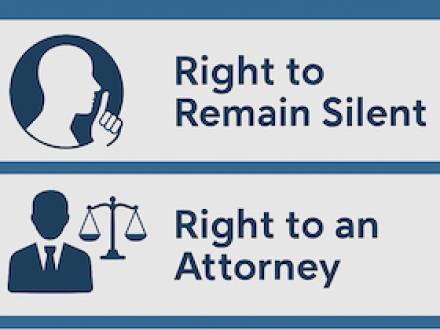Understanding Miranda Warnings and Police Questioning in Illinois: Your Rights in 2025
 Police questioning can be a critical moment in any criminal investigation, where knowing your rights can make the difference between incriminating yourself and protecting your future. As a Joliet criminal defense attorney with over 20 years of experience, including my time as a former Will County prosecutor, I've advised countless clients on how to handle interactions with law enforcement to avoid self-incrimination. At the Law Office of Jack L. Zaremba, we specialize in defending against charges where police questioning plays a key role, ensuring your constitutional rights are upheld in Will County courts. In this blog post, we'll explore when Miranda warnings are required, how to assert your rights during questioning, common scenarios, and strategies to safeguard yourself in 2025. For more on related defenses, check our guides on resisting arrest charges and defending burglary charges .
Police questioning can be a critical moment in any criminal investigation, where knowing your rights can make the difference between incriminating yourself and protecting your future. As a Joliet criminal defense attorney with over 20 years of experience, including my time as a former Will County prosecutor, I've advised countless clients on how to handle interactions with law enforcement to avoid self-incrimination. At the Law Office of Jack L. Zaremba, we specialize in defending against charges where police questioning plays a key role, ensuring your constitutional rights are upheld in Will County courts. In this blog post, we'll explore when Miranda warnings are required, how to assert your rights during questioning, common scenarios, and strategies to safeguard yourself in 2025. For more on related defenses, check our guides on resisting arrest charges and defending burglary charges .
What Are Miranda Warnings and When Are They Required?
Miranda warnings, stemming from the landmark U.S. Supreme Court case Miranda v. Arizona (384 U.S. 436, 1966), are a set of statements police must read to you before custodial interrogation to inform you of your Fifth and Sixth Amendment rights. These include the right to remain silent, that anything you say can be used against you, the right to an attorney, and that one will be appointed if you can't afford it. In Illinois, as governed by both federal and state constitutions, warnings are required only during custodial interrogation—meaning you're not free to leave and police are questioning you about a crime.
In Will County, this often occurs after an arrest for offenses like DUI, theft, or assault during traffic stops or at the station. If warnings aren't given, any statements made may be suppressed in court under the exclusionary rule. However, they're not needed for voluntary statements or non-custodial questioning. For the official Miranda case details, refer to the U.S. Supreme Court decision in Miranda v. Arizona .
In 2025, with increased body camera usage, evidence of whether warnings were provided is more readily available, aiding defenses against improper questioning.
How to Assert Your Rights During Police Questioning
If you're detained, politely ask if you're free to leave to clarify if it's custodial. If not, invoke your rights immediately: state you wish to remain silent and request an attorney. Avoid answering questions beyond basic identification, as even seemingly innocent responses can be used against you. In Illinois, under cases like People v. Hunt (2013 IL App (4th) 120079), once you invoke your rights, questioning must stop until a lawyer is present.
Common pitfalls include waiving rights unknowingly through continued talking. Remember, silence can't be used against you in court per Griffin v. California (380 U.S. 609, 1965). If patted down during a stop, it must be based on reasonable suspicion of criminal activity under Terry v. Ohio (392 U.S. 1, 1968).
Common Scenarios and Defense Strategies
In Will County, police questioning often happens during traffic stops escalating to arrests or at stations post-arrest. If no Miranda warnings were given during custody, we can file motions to suppress statements, potentially weakening the prosecution's case. Strategies include reviewing body cam footage for violations, challenging custody status, or arguing coercion.
For example, in a recent Joliet case, we suppressed a confession due to absent warnings, leading to charge reductions. These tactics also aid in related license issues through our driver's license reinstatement services /drivers-license-reinstatement .
Why Hire a Criminal Defense Attorney for Police Questioning Issues?
Violations of Miranda rights can be pivotal but proving them requires legal expertise. As a former prosecutor, I understand interrogation tactics and how to counter them in Will County courts, protecting your rights from questioning to trial.
If you've been questioned by police in Will County, contact the Law Office of Jack L. Zaremba for a free consultation. Visit our contact page or call our Joliet office to discuss your case in 2025. Know your rights and defend them effectively.

















